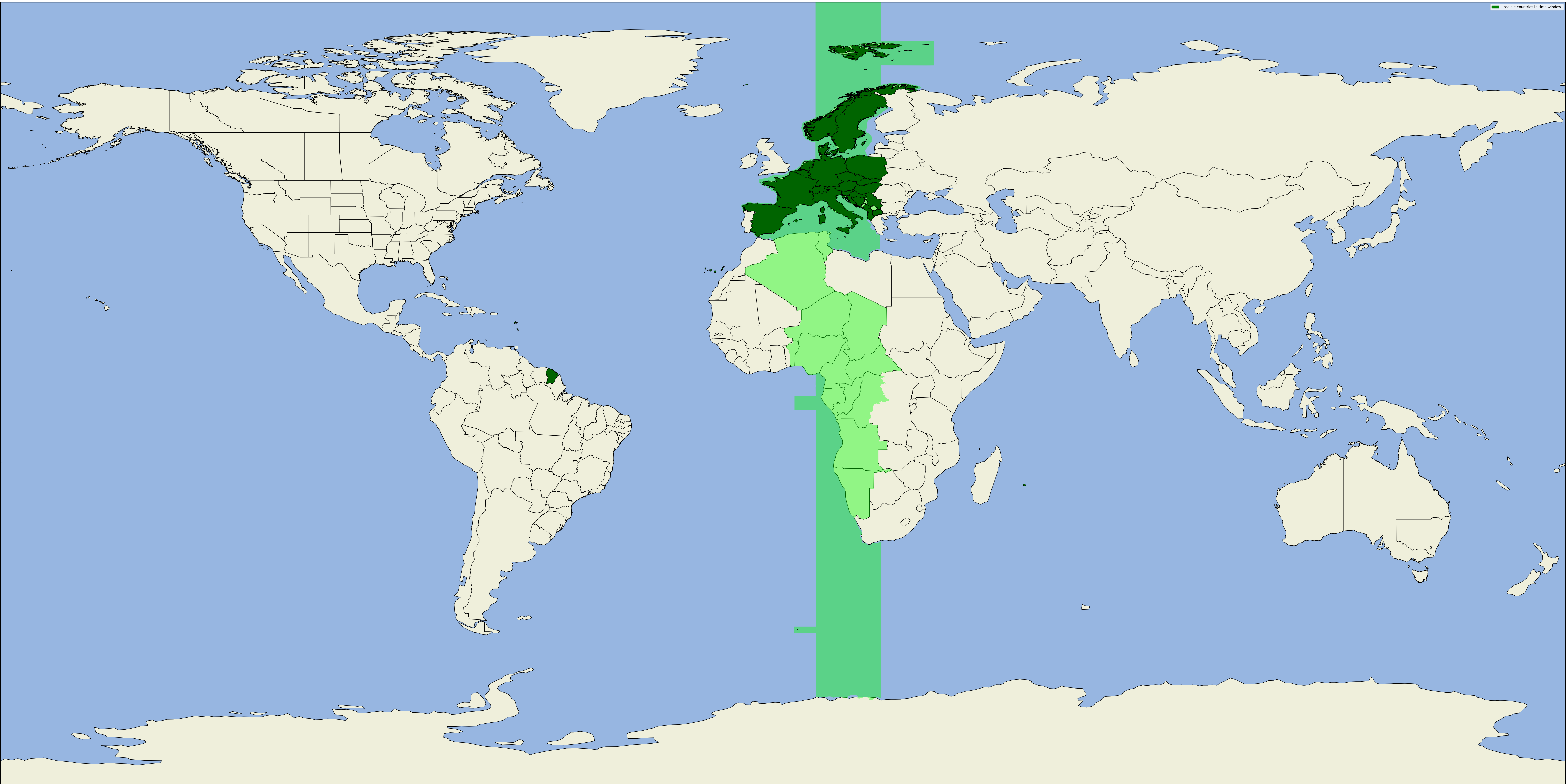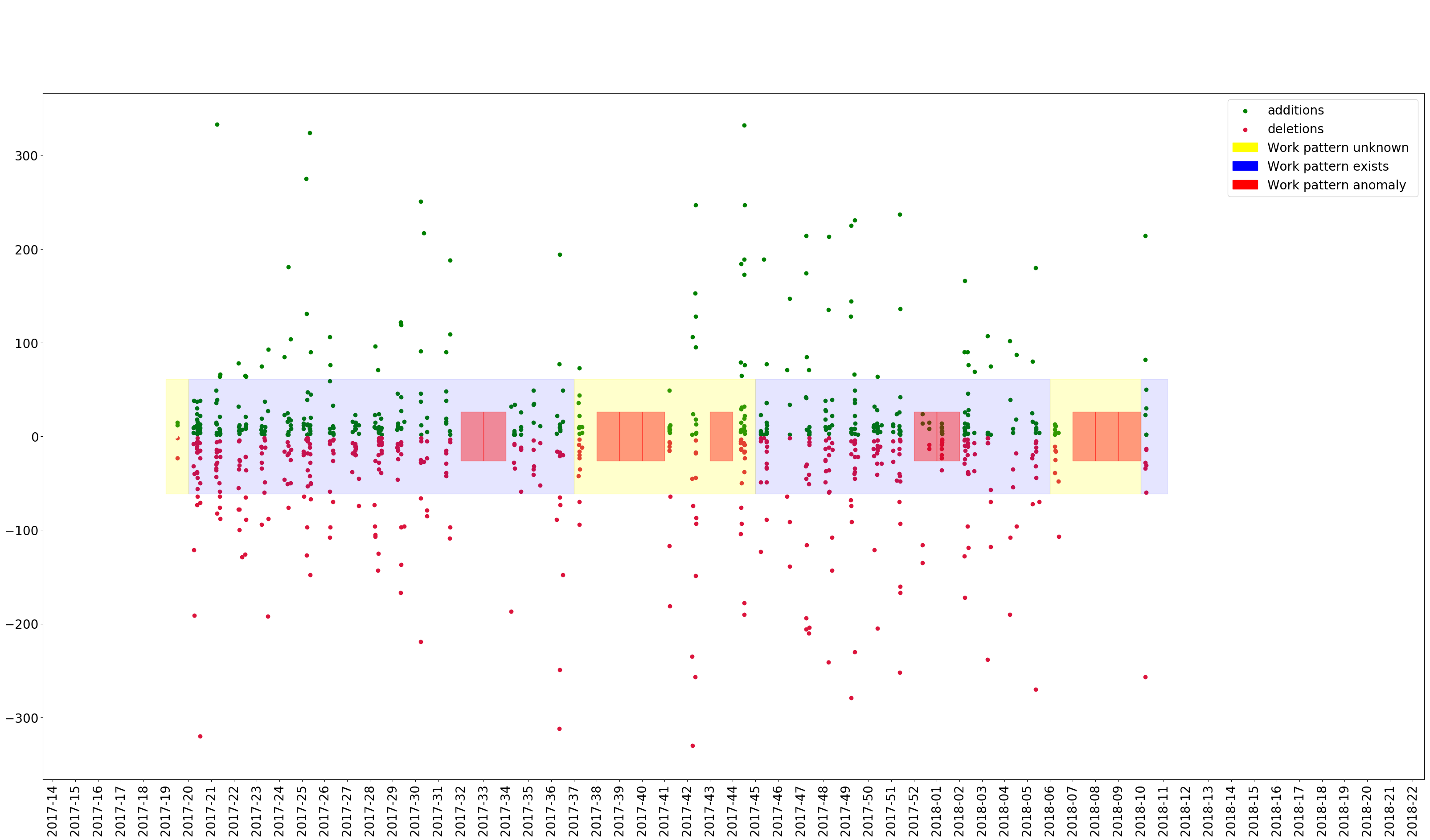Gitalizer was created in the scope of my bachelor's thesis Privacy implications of exposing Git metadata. The goal of this project is to explore the possible malicious usages of metadata that is collected during common Git usage.
This program is a combination of the Git/Github data aggregator Gitalizer and the analysis tool Gitalysis.
Gitalysis can be capable of:
- Tracking the location of a targeted git user via their open source contributions.
- Detect holiday and sick leave in your commit pattern as well as other anomalies.
- Draw punchcards in the old Github style, which provide insight into the sleeping and working rhythm of a person.
It needs to be said again, that this project happened during the course of 5 months whilst writing my bachelor thesis. I'm not all that familiar with modern data mining techniques and im very certain, that an experienced data scientist could extract a lot more information from this data.
The aggregation code of Gitalizer is quite stable and capable of collecting several million commits in the course of a day.
This program is not written to be used in a malicious way! Please just don't do it. I rather want people to understand, that somebody else might use it this way and that they might even be already doing it. I want you to understand, that even simple metadata such as git commit timestamps and the git commit history can be used in malicious ways.
Image from home location and travel path analysis:
Holiday/sick leave and other anomaly analysis:
Sleep rhythm and working hour analysis:
If you want to use Gitalysis, you need to install several dependencies:
- proj
- geos
- agg
You can install gitalizer and gitalysis either by using pip
pip install gitalizer gitalysis
or by installing it manually:
- Clone the repositories
- (Optional) Create a virtual environment and activate it.
- Run
python setup.py installfor release mode orpython setup.py develop, if you want to develop.
- Setup PostgreSQL and create a database.
- Either copy the gitalizer.example.ini to your
~/./config/directory or startgitalizeronce to initialize a dummy config. - Adjust all parameters to your needs.
DB related:
gitalizer db initdbInitializes a new database with schema and populates the timezone databasegitalizer db build_time_dbRebuild the timezone database (needed if a new version was released)
Scanning:
User:
gitalizer scan user [login] --with-followersScan all repositories and stars of a user. If the--with-followersflag is provided, all repositories and stars of all followers and following will be scanned as well.
Repository:
gitalizer scan repository from_github [owner] [name]Scan an repository by owner and name.gitalizer scan repository from_github_for_users [full_name]Scan all users of an github repository.
Organization:
gitalizer scan organization by_name [name]Scan an organization by name.gitalizer scan organization members [name]Scan all members of an organization.gitalizer scan organization user_membershipGet the associated organizations of all members in our database.
Deletion of entities:
gitalizer delete repository [full_name]Delete a repository with all it's commit
Maintenance stuff:
gitalizer maintenance completeComplete repositories which haven't been completely scanned, either due to an error or manual stopping.gitalizer maintenance updateRescan all repositories and users.gitalizer maintenance cleanRemove duplicated commits. This is mostly probably deprecated functionality, since these problems shouldn't occur any longer, but it is left for possible future development problems.
In general there are many missing features, but the basic framework for further work exists and extending it should be quite easy.
- Flag contributors and repositories as explicitly scanned to avoid constant data growth during rescans.
- More deletion methods for other entities.


